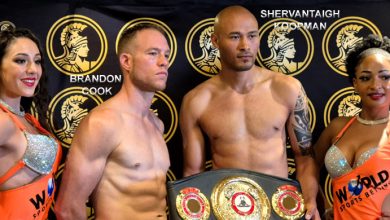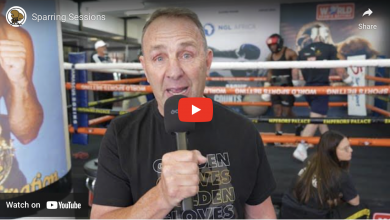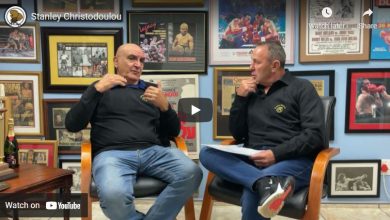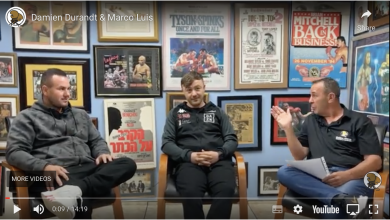Joe “Axe Killer” Ngidi, the post-war pioneer who shined in the shadows.
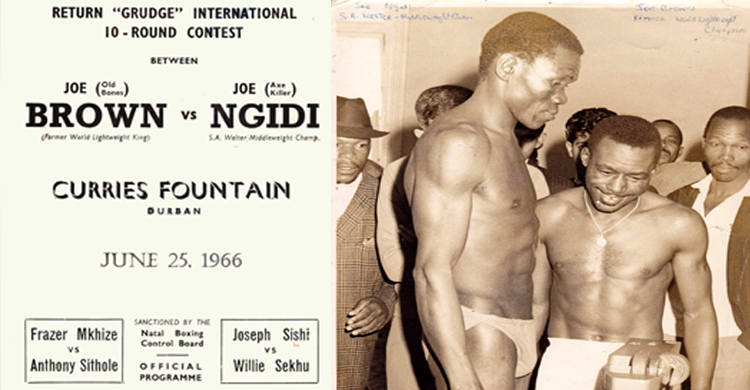
In the period after the second world war, Joe Ngidi was one of the most popular black boxers in South Africa. An exciting, aggressive fighter whose favorite punch was a swinging right which gave him his ominous nickname, he was unfortunately also a victim of the racial discrimination of the time. National titles were split into “black” and “white” champions and on the two occasions that he fought white South Africans, the fights had to happen in Maseru, Lesotho, where he dropped decisions to Bennie Nieuwenhuizen and Willie Ludick.
Still, he certainly made the best of a bad situation and reigned for many years simultaneously as both the South African “black” welterweight and middleweight champion, as well as campaigning abroad.
He won the welterweight title by outpointing Gilbert Petros in 1956 and a year later he also annexed the middleweight title from Elijah Nyakale, winning a decision over 12 rounds.
He travelled to the UK in 1958 and made people take notice when he beat Attu Clottey over ten rounds. That led to a campaign in Australia where he had eight fights, winning six and losing two. Included among them were impressive wins over former and future British Empire welterweight champions, Darby Brown and George Barnes.
When he returned to South Africa, he lost and regained his welterweight title against Philemon Tshabalala in one of the most exciting rivalries in a South African ring. The pair met no less than six times, Ngidi winning their series 4-1-1.
Between 1961 and 1965 he went on a 21-bout winning streak, recording wins over another black star of the time, Enoch “School Boy” Nhlapo, as well as former world lightweight champion, Joe Brown. He was on the verge of being recognized as a contender for the world middleweight title when the streak was snapped by American, Rubin “Hurricane” Carter, who knocked him out in two rounds in Johannesburg.
He compiled another winning streak, which included two more wins over Brown, before losing a ten-round decision to former world junior welterweight champion, Eddie Perkins.
Ngidi just kept going, losing his welterweight and middleweight titles, only to regain the middleweight title in 1968. That led to a fight with former world welterweight champion, Curtis Cokes, who stopped him in four rounds.
Still, he seemed to be a magnet for big name overseas opponents and in 1969 he met reigning world junior middleweight champion, Freddie Little, in a non-title fight in Benoni, but was stopped in seven rounds. When Gordon Goba outpointed him for the middleweight title in his next bout, it spelled the end for him at the top of the local pile, but he fought on with mixed results, finally retiring in 1972 with a record of 75-21-2 at the age of 38.
When the dust settled, Joe Ngidi was a three-time national welterweight and two-time middleweight champion, his various reigns spread out over 13 years. He also fought four world champions, two world title challengers, as well as two Empire champions.
It can safely be said that the “Axe Killer” left it all in the ring.

